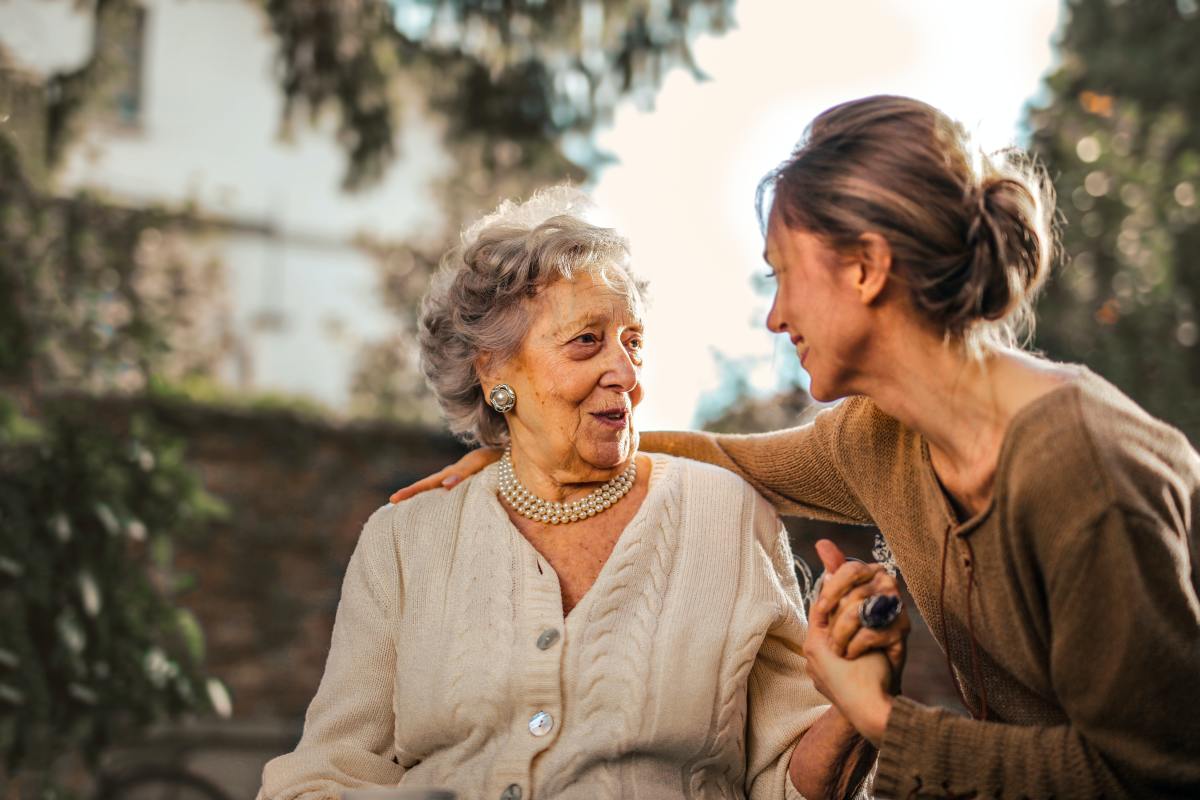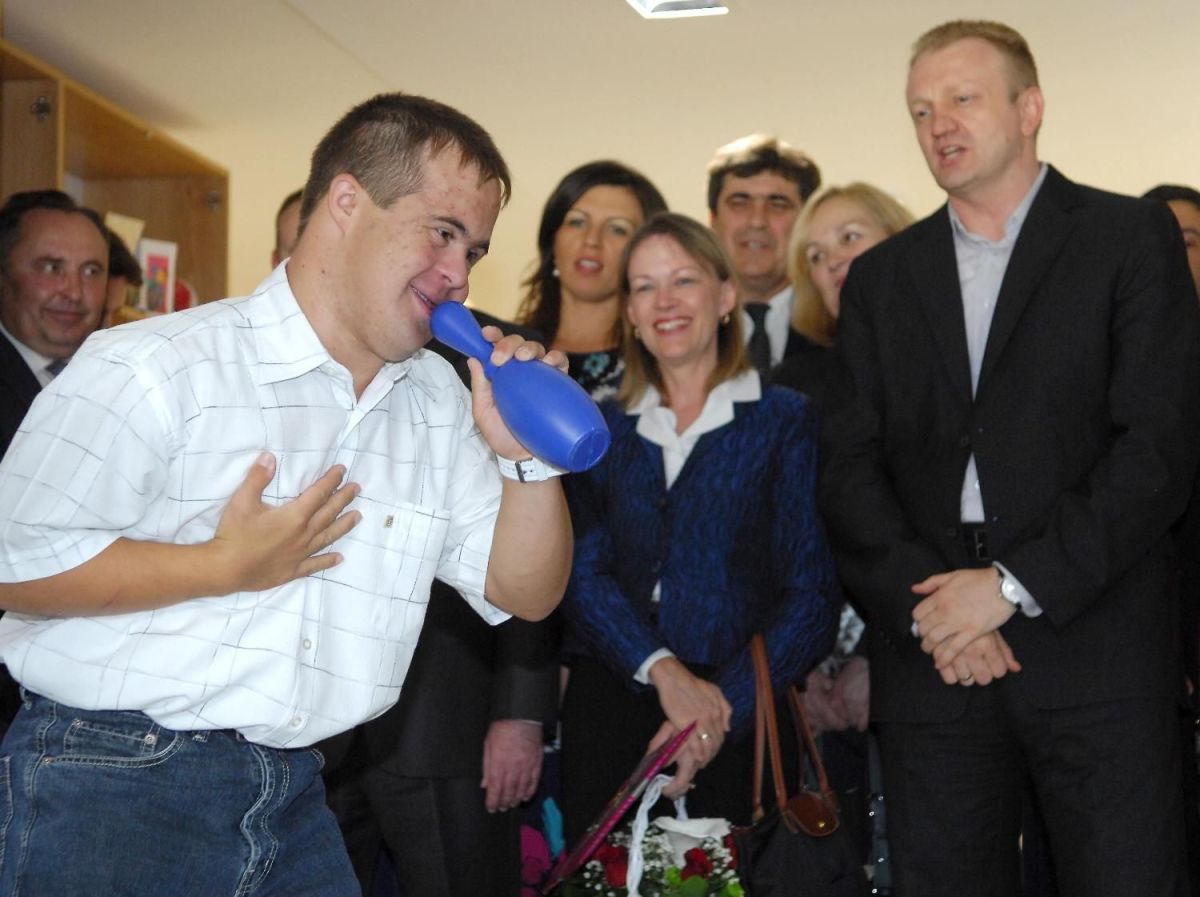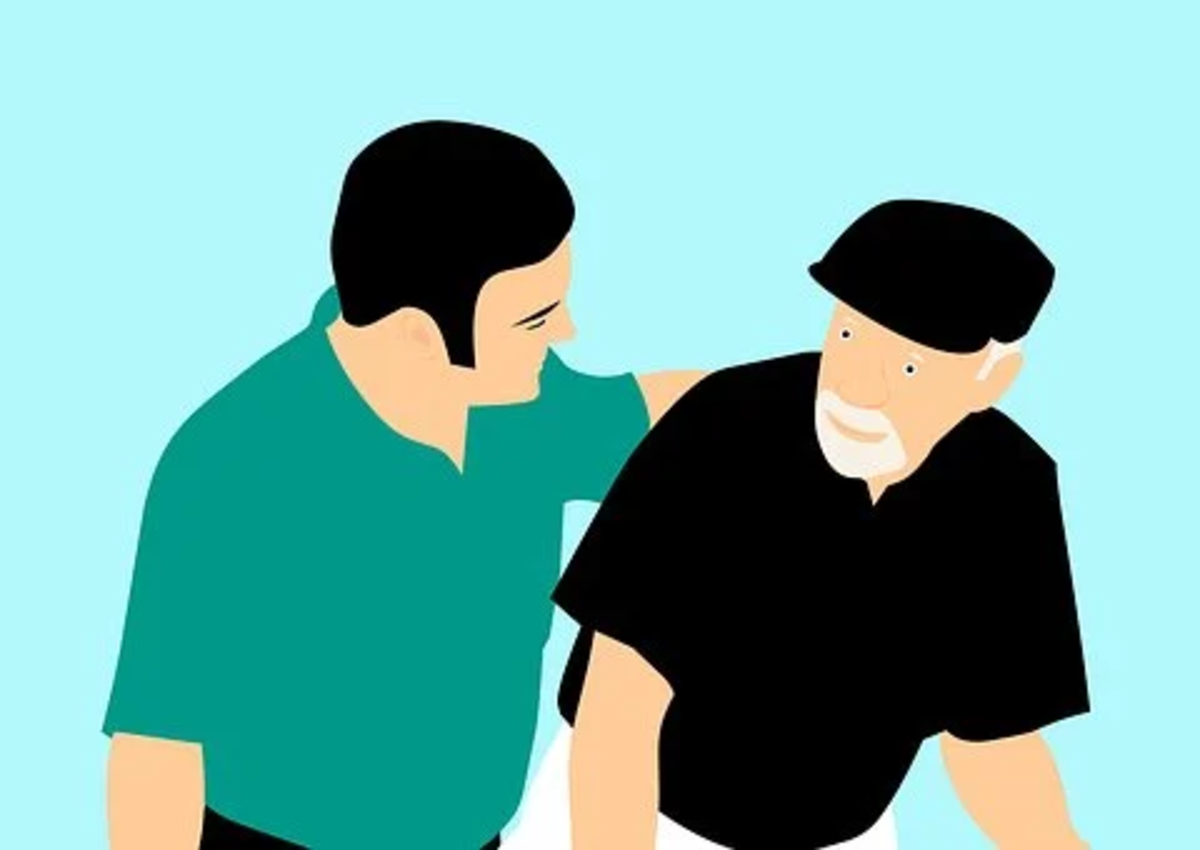The Journey to Providing Full Time In-Home Health Care for an Invalid Parent with Alzheimer's and Vascular Dementia
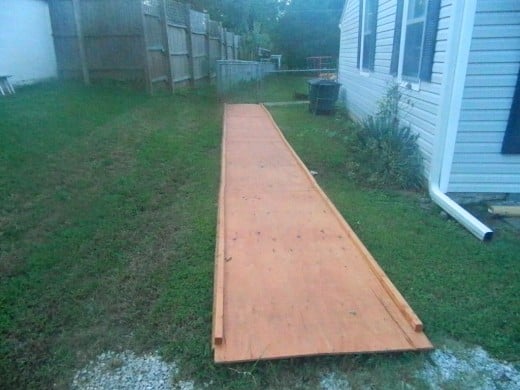
One week ago...
We made the drive to a small town outside of Springfield, Mo. in order to pick up my father in law from the care facility he was living in. This was the second facility he has lived in, the first being a unit specifically designed for those who were afflicted with Alzheimer's. To recap how we arrived at this point, he drove into our town one January morning in 2014, after driving from Springfield to Nevada first, then reversing the route and stopping in Joplin. Springfield to Nevada is about a two hour drive while the journey from Nevada to Joplin is an hour. So that we know of, he had already traveled some three hours before he arrived in our town where he called us to say he was lost.
Once we picked him up, we took him to a hospital to be checked out due to the confusion evident in his demeanor. After a series of tests and an MRI we were given the diagnosis of Alzheimer's and Vascular Dementia. Ultimately this meant that he would begin the next phase of his life living in a facility being cared for around the clock.
After two years in this facility, featuring several weekend calls detailing his "combativeness" with either staff or other residents, he was sent to the hospital to check his medications and see if a change was in order. First, his combativeness this day was him wadding up a napkin and tossing it across the table at lunch towards his "girlfriend", a fellow Alzheimer's patient. Each day was a new meet for them, getting to know one another and each liking what they saw in one another. It was cute, it was harmless, and it was a game they played with one another. Yet on this day, one of the nurses on duty decided to take umbrage with it and sent him off to the hospital. The hospital called us to report he was calm, no issues found and that they were sending him back to the facility. Whereupon his return he was again flagged by this nurse, the ambulance called once again and he was sent back to the hospital. This time, he was found to be weak and moderately dehydrated (no lunch, no drinking for six or seven hours in this farce will do this) so they decided to keep him overnight for observation. His records indicated he was a fall risk but no measures were taken to prevent a fall and overnight, he fell out of bed. A broken hip was the result. A surgery was performed and he was sent to another facility (at our request) for rehab. This was an utter disaster as he was so weak he was unable to participate in any rehab and after a few days (what was offered by his insurance) he was deemed unable to participate any further and rehab was dropped. He was now wheelchair bound for life.
That was in 2016 and he has continued to decline in mental capacity. Our last visit saw him not knowing either my wife or I, barely able to feed himself, unable to get into or out of his wheelchair without someone supporting his weight fully. He cannot go to the bathroom by himself and is using diapers constantly. His latest visit to the hospital (another weekend staff member) led to the discovery that his glucose was out of control, and he had a severe urinary tract infection. This led to our decision to pull him from the facility and provide for him to the best of our ability. This led to what I described in my previous article here and our decision to move.
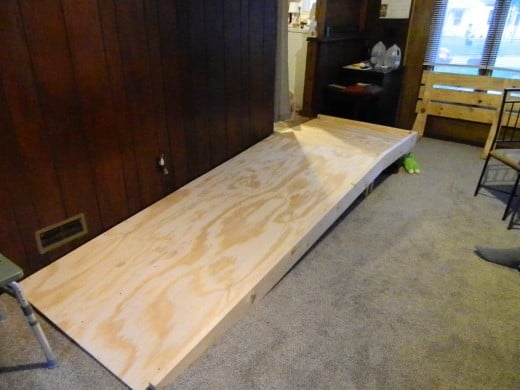
Readying the home for him
Once we moved into the new home, we had to make it accessible for his wheelchair to the best of our ability. Not everything in the home is perfect, nor even close but most of it will be acceptable. First up was a ramp built indoors leading from his bedroom to the rest of the house. Our new home has a garage which has been retrofitted into a nice room which we will use as his bedroom. Two small steps lead up to the kitchen, making it both convenient for us to fix food and bring to him and forcing us to build a ramp. I am moderately handy when it comes to small projects like this and in short order I had designed, purchased materials and built the ramp. My wife researched and purchased a transport wheelchair, meant for transporting people from one place to another. Lightweight and foldable, it suits our needs in picking him up and getting him home. A more substantial wheelchair will come once we see the doctor and get a prescription for one. Also a manual lift to get him from chair to bed and bed to chair, also from chair to bath.
For me, next came what I am calling a boardwalk, some thirty feet long and three and a half feet wide spanning a wet area on the side of our home allowing us to wheel him from the front driveway to the back yard where the door to the house is for him. Then came a couple of short ramps allowing us to wheel him up a couple of small steps and into the house.
I also had to design and build a bed rail to keep him safely in bed. His bed is against one wall so we only need something for the other side. Looking online at what was offered I couldn't find just what I wanted; oh there are a number of things that would work but they all seemed either flimsy or too pricey for what we could afford. What I built was out of the remnants of my other projects, the boardwalk and ramps so minimal more purchases were needed. It is sturdy, and does the job well. We fasten it in place using bungee cords around the legs and secured to the underside of the bed and move it out of the way, in front of the windows when not in use. Before I got it built, I went in one night around 2:00 AM to check on him (we heard some talking) and found him setting up in bed, holding onto the chair I had set alongside the bed to protect him. Setting up! When we move him from bed to chair and vice versa, he cannot set up, lift himself or move his legs but in the middle of a dream he sat straight up and turned sideways with his legs off the bed and feet on the ground! We do not understand this disease.
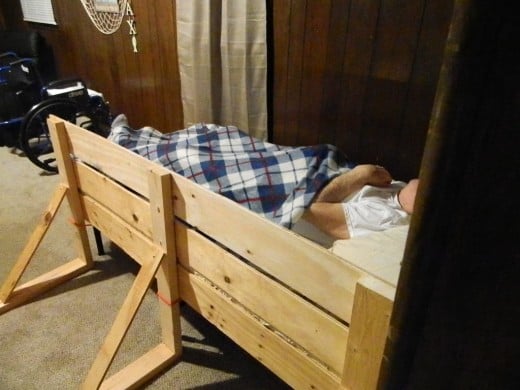
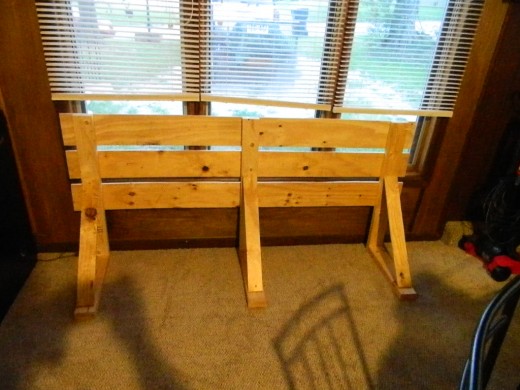
The first week home
Saturday was our pick up day and the two hour drive went well. He was awake and staring out the window of our Trailblazer while in transit. A thought here: the staff at the facility where we got him was concerned with the height of our vehicle. It was tall and they were going to have to lift him up a few inches to the seat. Their words were, and I quote, "This could get ugly". Two women and one man, a belt around his chest and watching his head while lifting they were able to get him into the SUV without harming him. However, I was concerned for when we got him home, there would only be my wife and myself to get him out without harm and into the wheelchair.
It turned out that I was up to the task and with my wife's help maneuvering the wheelchair and watching his head I was able to lift him upright and set him gently into the chair.
Note to all of you thinking about this: I turn 60 years old this year, stand 5'10" and weigh 245 pounds. I have high blood pressure and am overweight but working at SDC has left me with strong legs from walking some 5,000 miles these past two and a half years. I was able (just) to lift him and support him. You need to know if you can do the same. My father in law is 6'1" and weighs 190 pounds and it is a struggle for me. If you are unsure as to your abilities, get help be it another person or mechanical means. Do not take a chance and hurt either your loved one or yourself. There are times he cannot assist at all and my back is taking the entire load; and there are times he tries to help and wraps his legs around mine in a grip so tight I can't shake him, let alone stand up holding him straight enough to move him from one to another location.
How we spend the day and meals
Food hasn't been an issue thus far. He eats what we fix well but we have to feed him. Cutting food into bite sized pieces and spoon feeding him is best, mixing in water for the most part to drink. Milk comes at breakfast to help with his calcium intake. My wife is in charge of his medicines and he gets the following: eight pills at breakfast, a single at lunch, and nine at dinner. He sometimes wants to chew them and we do our best to dissuade him from this, sometimes resorting to placing a pill on mashed potatoes or maybe yogurt in order to give him something that will slide smoothly down his throat carrying the pills.
Most of the day he sits in his wheelchair, and we put on a movie for him to watch. He loves John Wayne and Clint Eastwood so we find one of those on his TV and watch it with him. Sometimes he can pay attention; sometimes not. Either way, one of us sits beside him and talks to him about the film, doing the little things I know he didn't have done in the facility.
A couple of times during the day we give him a snack. Sometimes its peanuts in a bowl that we set beside him and monitor as he picks up one at a time to eat; other times it might be small slices of colby cheese, summer sausage and crackers. Again, they are set near to hand for him to feed himself. Anything we can set up for him to do himself we encourage. Meals are another matter as he cannot manipulate a piece of silverware anymore to balance food upon it and get it to his mouth so we spoon feed him one bite at a time.
At times, he closes his eyes and we aren't sure he is awake but most of the time when we speak to him (need another bite or are you full) we get some kind of reaction that lets us know he is still with us and understanding that we are there.
Some days are diamonds, some days are stones
He has his good days, and he has some bad days. The first night we brought him home, when we changed him, cleaned him up and put him to bed, as he lay down for the night he sighed heavily, a smile on his face. I asked him if he liked the bed and he replied, clear as day that it felt good. After sleeping on a bed meant to prevent falling, made of hard material with a lip and plastic sheathing for bedwetting to lie down in an actual bed was wonderful to him. I did not expect this reaction; with him resetting every couple of minutes I didn't think he would retain enough memory to be able to compare what was with what is. But he did. Surprise, surprise.
By the following Wednesday, when we were to take him to the doctor for a meet and greet, he was almost catatonic. Slumping in his wheelchair, eyes closed, no verbal skills whatsoever on display it was like he was setting up while in a coma. All day Wednesday and Thursday he was, as I am terming it, gone. Friday morning he began to return, and from there he has improved to the point where he actually stopped eating lunch Sunday and declared he had to "take a crap"! This from a person who has been in diapers for three and a half years because of his hip and who hasn't been able to do anything other than go in his pants since! He had lost sensation to know, to advise, to desire to use the bathroom and on this day he knew, he KNEW he had to go before he went! We were astounded!
The loss of dignity
This is an area that I am having the most trouble with, this loss of dignity and us having to clean him up several times a day. His UTI was a direct result of having had wet diapers left on for extended periods of time, we believe. So we check and change him multiple times daily. Tonight, as we made ready to put him down to sleep he surprised me once more when he stated that "we were going to take his clothes off" and clean him up. Again, this man resets every few minutes so to have a memory of what we do as a ritual shocked me once more.
We have worked out a method where we move him into position with his head on his pillow, pull his pants off and take off his diaper. I turn him on his side and hold him while my wife cleans up whatever is there and gets the new diaper ready. We fold down the right side of the diaper that has the tabs, place them under him and roll him back over onto his back. We then lift him slightly to get at the tabs, pull them into position and then attach the diaper in place. It takes a couple of "rock n rolls" to get it right but by folding over the tab portion of the diaper and pushing it slightly under his body then pulling them out the other side we discovered it is far easier to do it this way than any other.
We have tried both human pee pads and pet ones as a protector under him as he sleeps and they both work the same. We use nitrate gloves, baby wipes, baby powder and a cream to help with chaffing in order to keep him as comfortable as possible. And we use face masks to limit the smells associated with this duty as well as minimizing any contaminants which may be present on the air during the process. Following the duty we use hand sanitizer and then immediately wash our hands with soap. Can't be too careful when dealing with body fluids (and solids).
The end of our first week
We made it to the end of the first week, although there were times I didn't think we would. We have learned some things through trial and error, and have questions lingering which can only be answered by the doctor. Being in a small town puts us at a disadvantage as the doctor is only in town three days a week so questions are not answered quickly or easily and patience is not only a virtue, it is a must for us.
We are still waiting on finding out if we can get some in home assistance, if we can get a mechanical lift to save my back, a real wheelchair not just a transport one, and to see if every medicine he is taking is really needed. In our meeting with the doctor last Wednesday he advised that we could taper off and halt a couple of meds because their effectiveness had long since halted.They are ones designed to slow the disease he has but per him, their effectiveness is only to give him a couple of years of less than bad living. Basically, he has outlived what they can provide and at this point (nearing the end stages of Alzheimer's and vascular dementia) they have ceased being effective at all. So, one stage at a time we are halting giving them and in a month or so he will be free of them altogether. I will be curious to see how he reacts to them being gone.
As we learn, I will put our experiences here for others to read. Thus far we haven't found anything that details what we are doing so maybe this will help someone else as they need help.
Until next time. God bless.
This content is accurate and true to the best of the author’s knowledge and is not meant to substitute for formal and individualized advice from a qualified professional.
© 2019 Mr Archer





